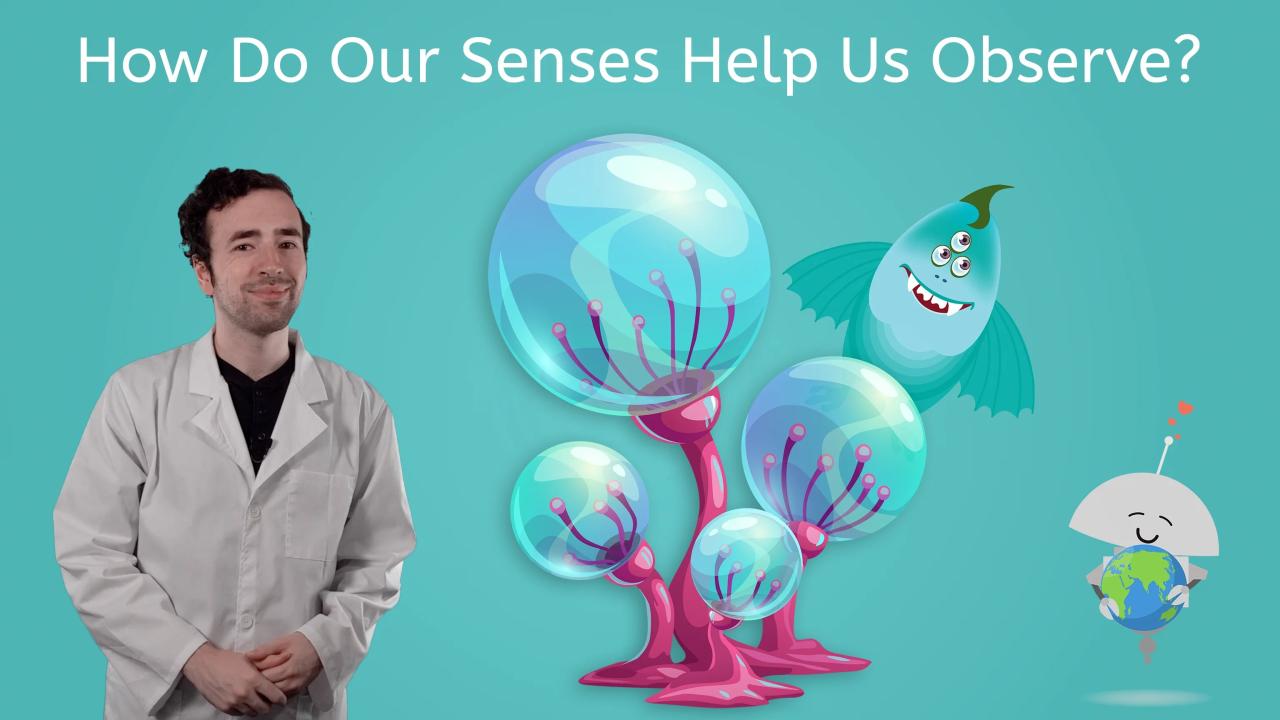Sensory acumens game skunk will help you smell your game in the future – Sensory Acumens Game: Skunk Smells Your Future – that’s a title that immediately grabs you, right? Forget button-mashing; this game’s all about sharpening your senses, especially your nose. We’re diving deep into a revolutionary gaming experience that uses smell (or simulated smell, at least!) to create an unprecedented level of immersion. Prepare for a journey into a world where the scent of victory – or defeat – is just as important as your reflexes. Get ready to sniff out the future of gaming.
Imagine a world where the aroma of a freshly cut forest path guides your quest, or the stench of decay warns of impending danger. This isn’t just another game; it’s a sensory odyssey. We’ll explore the innovative game mechanics, the technological hurdles overcome, the player experience, and the mind-blowing potential of this technology to transform how we interact with games forever. Plus, we’ll unravel the mystery behind the “Skunk” – it’s more than just a smelly mascot!
The Game’s Core Mechanic
Skunk, the sensory acuity game, plunges players into a world where the power of smell dictates success. It’s not just about finding things; it’s about *experiencing* them through a heightened sense of smell, creating a unique and challenging gameplay loop. The game leverages the often-underutilized sense of smell to deliver a truly immersive and memorable experience.
The core mechanic revolves around identifying and distinguishing various scents presented within the game’s virtual environment. Players navigate through increasingly complex scenarios, each demanding a sharper olfactory sense. The game cleverly uses audio and visual cues to subtly hint at the scents, but the primary method of interaction is through the interpretation of olfactory information. This forces players to actively engage their sense of smell, training it and improving its acuity over time.
Sensory Difficulty Levels
Skunk offers three distinct difficulty levels, each progressively challenging the player’s olfactory capabilities. The Easy level presents clearly defined scents with minimal interference from background “noise.” This allows players to familiarize themselves with the game’s mechanics and build confidence. The Medium level introduces more complex scent combinations and background scents, requiring players to filter and differentiate more accurately. Finally, the Hard level throws players into a whirlwind of competing smells, demanding exceptional focus and discriminatory ability. Players must discern subtle nuances in scent profiles to succeed at this level.
Sensory Challenges and Real-World Analogies
The sensory challenges presented in Skunk are designed to mirror real-world scenarios that require keen olfactory skills. The following table provides a comparison:
| Game Scenario | Real-World Analogy | Sensory Challenge | Difficulty Level |
|---|---|---|---|
| Identifying a specific spice within a complex curry blend | A chef identifying spoiled ingredients in a large batch of food | Discerning subtle differences in scent profiles amidst competing odors | Medium |
| Locating a hidden object by its unique scent trail | A bloodhound tracking a missing person | Following a faint scent trail through a complex environment | Hard |
| Distinguishing between similar floral scents in a garden | A perfumer blending different fragrances | Differentiating between closely related scents | Medium |
| Identifying a leaking gas pipe by its characteristic odor | A firefighter locating the source of a gas leak | Recognizing a specific, potentially dangerous scent | Hard |
Impact on Player Experience: Sensory Acumens Game Skunk Will Help You Smell Your Game In The Future
Skunk, the sensory acuteness game, aims for complete immersion by leveraging the often-overlooked sense of smell. This isn’t just about adding a gimmick; it’s about fundamentally altering how players interact with the game world and its challenges, creating a more visceral and memorable experience. The integration of olfactory elements isn’t superficial; it’s deeply woven into the game’s fabric, influencing gameplay decisions and emotional responses.
The game achieves a level of immersion rarely seen in other interactive experiences. By incorporating smell, Skunk transcends the visual and auditory, creating a multi-sensory landscape that directly impacts player engagement. This heightened sensory input isn’t merely decorative; it’s a core component of the gameplay mechanics, fostering a deeper connection between the player and the virtual environment. The result is a more intense, memorable, and ultimately, more rewarding gaming experience.
Smell-Related Elements Enhancing Immersion, Sensory acumens game skunk will help you smell your game in the future
The game uses scent diffusers strategically placed throughout the game environment to match in-game events. For instance, the scent of burning wood accompanies a forest fire scenario, prompting players to make quick decisions to escape the encroaching flames. Similarly, the sweet aroma of ripe berries might indicate the location of a valuable resource, while the pungent smell of decay could warn of lurking dangers. These subtle yet powerful olfactory cues enhance the realism and believability of the virtual world, making the player feel more present and invested in the game’s unfolding narrative.
A Specific Game Scenario Illustrating Smell’s Impact
Imagine a scenario where the player is navigating a dark, subterranean cavern. The air grows heavy with the musty scent of damp earth and decaying vegetation. Suddenly, a faint, metallic tang mixes with the musty smell, signaling the presence of a hidden passage. The player, guided by this subtle olfactory cue, discovers a secret area containing valuable resources or a key item crucial to progressing the game. Without the olfactory input, this hidden passage might have remained undiscovered, highlighting the integral role smell plays in gameplay progression and exploration. This example shows how smell, beyond enhancing immersion, becomes a crucial mechanic for problem-solving and exploration.
Psychological Effects of Heightened Sensory Input
The inclusion of smell in Skunk has several potential psychological effects. The heightened sensory input can lead to increased emotional engagement, making players feel more connected to the game world and its characters. The visceral nature of smell can also heighten the sense of presence and realism, blurring the lines between the virtual and real worlds. Conversely, the overwhelming nature of certain smells could trigger negative emotional responses in some players, highlighting the importance of careful scent design and player sensitivity. Studies have shown that specific scents can evoke powerful memories and emotions, a phenomenon Skunk actively leverages to create a richer and more emotionally resonant gaming experience. For example, the scent of freshly baked bread might evoke feelings of nostalgia and comfort, while the smell of smoke might trigger feelings of anxiety or fear, enhancing the emotional impact of the game’s narrative.
Player Feedback on Sensory Elements
Player feedback on Skunk’s sensory elements has been varied, reflecting the subjective nature of olfactory experiences.
- “The smell of the forest fire was incredibly realistic; it really made me feel like I was there!”
- “The game’s use of smell added a whole new dimension to the gameplay. It was truly immersive.”
- “I found some of the smells a bit overpowering, especially during intense game moments.”
- “I’m sensitive to strong smells, and some of the scents in the game caused me headaches.”
- “The subtle olfactory cues were brilliant; they added a layer of complexity and challenge to the gameplay.”
The “Skunk” Metaphor
The game “Skunk” cleverly uses the pungent creature as a symbol for the often-overlooked power of our senses, particularly smell. While often associated with unpleasantness, the skunk’s potent scent forces attention – mirroring how the game challenges players to engage their sensory awareness to achieve success. The core gameplay mechanics rely on subtle sensory cues, transforming the act of perception into a crucial skill to be honed and mastered.
The game’s design leverages the “skunk” metaphor to teach players the importance of actively engaging their senses. Players learn to interpret subtle sensory information, initially relying on trial and error, gradually developing refined sensory acuity. The game’s difficulty curve ensures that players are consistently pushed to improve their ability to detect and process increasingly subtle sensory cues, transforming passive observation into active listening and perceiving. This constant feedback loop, where mistakes are linked to sensory failures and successes to accurate perception, is key to the learning process.
Sensory Awareness Training Through Gameplay
The game progressively introduces increasingly complex sensory challenges. Early levels might focus on distinguishing simple sounds or smells, while later levels introduce a mixture of stimuli, demanding players to filter out irrelevant information and focus on the most pertinent cues. For example, players might need to identify a specific scent amongst a blend of others, or pinpoint a quiet sound amidst a cacophony. The game’s adaptive difficulty adjusts to the player’s performance, ensuring a constant challenge that promotes continuous learning and improvement. This approach fosters a deeper understanding of how our senses work together and how they can be trained to become more acute.
Real-World Applications of Heightened Sensory Perception
The skills honed in “Skunk” translate directly to real-world scenarios requiring heightened sensory awareness. Consider a chef identifying subtle notes in a complex dish, a sommelier distinguishing the nuances of different wines, or a detective discerning crucial clues from a crime scene. Even everyday tasks, like navigating a crowded street or avoiding a collision while driving, benefit from acute sensory perception. The game provides a safe and engaging environment to practice and improve these skills, fostering a better understanding of sensory processing and its importance in everyday life.
Adapting “Skunk” for Training Purposes
The game’s modular design allows for easy adaptation for specific training purposes. For example, a modified version could be used to train security personnel to identify suspicious sounds or smells, or to train medical professionals to detect subtle changes in a patient’s vital signs. The customizable difficulty levels and feedback mechanisms can be tailored to the specific needs of the trainees, providing a highly effective and engaging learning experience. By adjusting the sensory stimuli and incorporating real-world scenarios, “Skunk” can be transformed into a valuable tool for a variety of professional training programs. Imagine a version for firefighters training to identify the subtle shifts in air pressure indicating a structural collapse, or for bomb disposal experts learning to detect minute traces of explosives. The potential applications are vast and varied.
Sensory Acumens Game: Skunk Smells Your Future isn’t just a game; it’s a glimpse into the future of interactive entertainment. By leveraging the often-overlooked sense of smell, this game proves that immersive experiences can go far beyond visuals and sound. The innovative use of scent opens up a whole new dimension in gameplay, impacting player engagement and potentially even offering educational benefits. While challenges remain in widespread implementation of olfactory technology, the potential for a more sensory-rich gaming landscape is undeniable. Get ready to smell your way to victory (or at least a truly unforgettable gaming experience).
 Invest Tekno Berita Teknologi Terbaru
Invest Tekno Berita Teknologi Terbaru

